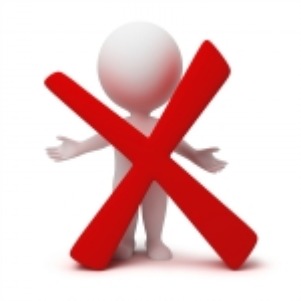
| Home | Introduction | Negative Aspects | Positive Aspects | Conclusion | Bibliography |
|---|

While 80%-90% of the 22 million users on Facebook are college students, 30% are not aware of the privacy controls they’re able to utilize as it pertains to distributing their personal information (Cain, para. 15). Nor are they aware of the detrimental effects it can potentially have on their personal, academic, and professional careers. Consequently, a vast majority of students are not cautious of what they are posting on these websites for the publics viewing, nor are they aware of the potentially severe consequences. For instance, one student, receiving her degree in education, was refused the associated teaching certificate because a photo on her MySpace page was “deemed unprofessional" (Cain, para. 15). I’m sure she never dreamed a picture had the ability to affect the documentation on her degree that she undoubtedly worked hard for all throughout her academic career.
The possible negative effects of incorrectly or indiscreetly using a social network are also related to one’s career. Studies show that not only are prospective employers becoming more open to using Facebook as a means of character judgment, some employers are using it, but they are also beginning to incorporate the character judgment received from the social networking cites into their hiring decisions. In a case study conducted at the University of Dayton, four different higher education institutions and employers were used to demonstrate the gap between what students and employers perceive as fair in regards to using Facebook in hiring decisions. Only 28% of employers felt that Facebook content should not be used in hiring decisions as opposed to 60% of students (Cain, para. 24). School officials of all ranks and areas, as well as law enforcement agencies are beginning to use Facebook, as well as other online social networks as reliable way of obtaining information. The environment, in which someone is surrounded, has the ability to alter his or her life completely. Hal Niedzviecki, the author of The Peep Diaries, recorded Jeff White, a high school senior living in South Dakota stating that while majority of his peers used Facebook, none of them looked at the privacy code or customized their profile page to limit access (Niedzvieki 246). Jeff went on to explain that while posting pictures of one’s self at the “right party, waving a bright-red cup in front of one’s bright-red face” had rapidly turned into something of a necessity. However, posting pictures of one’s self and other people is a decision many high school and college students are quickly learning to regret. Jeff continued to talk to Niedzviecki about some of his peers who posted pictures of a beer party on their Facebook pages and shortly after were called into the principal’s office and threatened with expulsion for under aged drinking (Niedzvieki, 247).
While posting your ideas, feelings, future plans and pictures on social networks seems harmless enough, the content and context of one’s posting makes all the difference. Although Jeff’s peers were merely threatened with the possibility of expulsion, students in Jeff Cain’s article Social Networking Issue within Academia and Pharmacy Education were suspended and expelled from respective universities because of crime threats and racially insensitive remarks posted on Facebook (Cain para.15). Officials have also used Facebook as a means to investigate campus fights, and identify students who allegedly committed crimes against the school (Cain, para.15); simply because they were not using discretion when posting personal images on social networks.